Charles Pakana (VAN):
On a trip to Ballarat on Wadawarrung country early this year, I met with Elder and Stolen Generation survivor, Uncle Al Harris. Then, just two weeks ago, when I again visited Ballarat to attend a presentation by Thomas Mayo, we crossed paths once more.
Recognized widely as a strong voice within the local Aboriginal community, Uncle Al does never hold back from calling out injustices, and calling on community to stand in unity with each other and with Aboriginal people.
Well, as they say, third time’s a charm. And now, sitting in Uncle Al’s dining room, we finally have the chance to sit down and yarn about his perspective on Reconciliation, and importantly, the changing Black face of Ballarat. Uncle Al, thanks for joining me today.
Uncle Al Harris:
Yeah, thank you very much for having me, Uncle Charles.
Charles:
Unc, you’ve been here since 1996 in Ballarat, nearly three decades. You’re a Noongar man, have come across and the story we’ll tell later of coming across from Western Australia.
You’ve seen the good, the bad, and indeed the ugly of Ballarat. So, how would you describe Ballarat right now from a Black perspective?
Uncle Al:
At the moment, it’s going in the right direction. It was off the rails there for a while, because we had splinter groups that were not supporting each other. They were not talking to one another, et cetera. And a lot of them were not even identifying as Aboriginal, as Koori, and they didn’t show the pride of being a Black fella.
And, I mean, I wake up in the morning and I’m just so grateful I’m a Black fella. I really am, because it comes with, there’s 125,000 years of culture and history, and I’m just so lucky that I’m a part of that.
Yeah, I am a Noongar, Ngarrindjeri and Maralinga man, and so I’ve got three tribes. My mum’s tribe is the Central Desert tribes, which is the Ngarrindjeri and Maralinga.
My identity and heritage have always been a source of strength and pride, and it was with this same spirit that I sought to share our culture with the people of Ballarat.
Charles:
Now, this also, it’s worth pointing out, there was no mission here at Ballarat, but there was an orphanage. Correct?
Uncle Al:
That’s the difference with Ballarat compared to most other places, because a lot of other places, like you go down to Warrnambool, so you’ve got Framlingham, and places like that. Whereas here, we had an orphanage, and the children were brought in from all over the place. Tasmania, they were brought in from South Australia, from New South Wales and around Victoria. And identity and knowing where you come from, these poor people, they didn’t know who they were. They knew this wasn’t their country.
Charles:
These were still stolen children, weren’t they?
Uncle Al:
And these were stolen children. And so this community was basically made up of, I would say, probably 40% Stolen Generation involved with that orphanage.
29 years ago, it wasn’t cool to be Black to some people. And I don’t know if you understand what I’m saying. It was so sad, because people were scared to be known as Black fellas, because of all the racism that was not only in the town, at the shopping centers, the footy clubs, the netball clubs, the tennis clubs, the sporting clubs where our kids go to. And so they’re getting abused left, right, and center constantly.
Charles:
How bad was it?
Uncle Al:
It was very bad. It was so bad. And the community stuck to themself at the co-op, and the youth hung around the co-op. They didn’t go into the streets, hanging around the streets, or shopping, because there was the threat of violence against them.
Charles:
This is from the general community?
Uncle Al:
Yeah, from the general community.
Charles:
What about the police at that stage?
Uncle Al:
The police didn’t want to do anything about it. They didn’t want to take anybody’s sides, but they specifically didn’t want to back the Aboriginal person.
We had Merv Atkinson, and he’s passed away now, and he was a police officer, and he was a great guy, but he got treated pretty badly by the police as well. And so we’re hearing all these yarns of how he was treated, so why would we want to go to the police for anything, for help?
Charles:
Yeah.
Uncle Al:
Because if they treat their own badly, what are they going to do to us? So, it was a really mixed time then, because we really wanted to use the youth and their energy to set foundations in this community, that we could build on, and then educate children, and then start building a strong community, where we will make our stand, and we will be a part of the wider community, but we’ll be strong.
Charles:
Now, I know that times have changed dramatically, but there’s still a fair degree of racism. And you and I were talking about that just beforehand actually with your grandson. We’re not going to go into details on that one right now, but that was absolutely, staggeringly horrific. But what do you think were some of the turning points that have brought Ballarat to be at least a bit more progressive and accepting of First Nations communities?
Uncle Al:
I can’t see us progressing.
Charles:
From 29 years ago?
Uncle Al:
In that era, no, I really can’t. I mean, we were at that meeting together, and all we had was the same people that are saying, “What can we do? What can we do? What can we do?”
Charles:
Now, just so the audience is aware, this was at a meeting a couple of weeks ago where Thomas Mayo and Sheree Lowe from the First Peoples’ Assembly of Victoria, and Andrew Gunston, Co-chair of Reconciliation Victoria were talking about Reconciliation in the area.
At that meeting, I remember quite clearly, you, at three times, from the back of the room, held that room to account when you cited three specific examples of major steps forward in Reconciliation. And posed the question, quite seriously, to the audience, “Where were you?”
So, you’re quite right. We still do see the same people. It doesn’t matter if it’s in Ballarat, or down in Naarm or at Mildura. What then needs to change, from your perspective, in Ballarat?
Uncle Al:
I think the hardest part about change is finding out where the problem is. Is the problem a Black problem? Is it a White problem? And the more I think about it, it’s definitely not a Black problem.
We’ve made efforts in this community to blend in, to also share, invite the wider community to our events. We had the Treaty, and if any of the non-Indigenous people are scared about, “Oh, what’s this Treaty going to do?”, we invited them along and said, “Come along. It’s an open book. You can ask any question you like and you will get an answer to that on that day.”
Charles:
What happened?
Uncle Al:
No one turned up, and that’s why I questioned those guys. “Where were you? If you’re sitting here now, saying you want to do all this, you want to do that, where were you on that day when we invited you?”
And it was the same with the city of Ballarat. And they had a photo. It was about the adults that were still taken, and there was a whole set of photos and who were they? They didn’t turn up. And I know, because I stayed there for the whole lot with Lenka and no one turned up.
Charles:
Let me be a devil’s advocate, then. Was it really your position to come into the community and say, “Hey, we’ve got to bring about change”? Was a bit ballsy, let’s be frank.
Uncle Al:
It was, because everybody in the community wanted change. Nobody knew how to do it. And over a beer…
Charles:
Best conversations over a beer.
Uncle Al:
Straight after the footy game, because we all went to Sebas footy club and we had a Black grandstand there, and we cheered. A lot of our Black fellas were playing for the team. And so after that, you go to somebody’s house, you sit down and talk, and you have a yarn.
And then people start asking questions, and go, “Oh, gee, I wish we could do this better. I wish there was something better for my kids in this town.” So, that’s when we knew change has got to happen.
Charles:
What were the key things, though? Obviously, education’s a big one, being accepted by the broader community, relationships with police, but what were some of the key issues that you and that broader community were seeking to bring about change with?
Uncle Al:
Our children to have not only a good education, but to have a safe spot, have a safe place in their sport, to get rid of the mongrels that were there who were starting the fights by using racial slurs.
Our kids had to have something they could be proud of, and we wanted to give that to them as a community, as adults. We couldn’t.
And so the kids were growing up without knowing what’s ahead. There was no vision for them. “Oh, I’m going to do what Mum and Dad do.” Because mum and dad, they were just left out of everything, and so the kids were left out of everything as well. And then this is why I didn’t know how many Aboriginal people were in this community.
Then, all of a sudden, it became really awesome, because Black fella then became a cool thing. Being Black was awesome. This is around 2005, 2006, and being Black was cool. So, being Black and associated with the football club, with other Black fellas was a big thing.
Then, there was the basketball carnivals, Aboriginal footy carnivals, the camps. And so, all of a sudden, there was a movement, there was a change coming in town.
People who were stuck in their houses, and didn’t want to go out and be recognized as Aborigines, were coming out, saying, “Hey, I’m Black. Here’s proof.”
Charles:
Did that relate also to an increasing acceptance by the broader community, the non-Aboriginal community? You’re shaking your head right now.
Uncle Al:
I’m shaking my head, because of the very fact that nothing changed there. And we had to change our community before we tackled anything else. We knew that.
People had come here from their homes, and from their states where they were. So, we had, let’s see, people from the Kimberleys, Broken Hill, Broome, Tiwi Islands, Alice Springs, South Australia to Torres Strait, North Queensland, many, many other areas, and they all came to Ballarat.
And so by now the population is 2000. And so it’s building, and it’s becoming a strong community visually as well. And so shopping centers, you could go to to a shopping center, and you would see at least three, four, five, six Aboriginal families.
And you’d nod at them, they’d nod back at you. Then, if they weren’t in a hurry and you weren’t, you’d say, “Oh, where are you from, brothers?” And then, you know, the typical conversation you have when you meet another brother for the first time. And so that’s when things started changing in the community.
And I was always saying to them, “Come down and see me down in the mall. Come and see me and me son. We’re busking down there.” “Oh, you’re busking?” And I go, “No, we’re not begging. We’re busking because we want to be seen in this community. We want people to know that they can come down and talk to us anytime we’re down there.” And we’d say, “We want all you Black fellas. We’re down there pension day. If we’re down there pension day, you’re going to buy me a drink afterwards. Right, you got it?” And they’d go, “Yep, no worries.”
And so that started, I guess, making things change. And the change started happening within people, within the smaller groups, and they were getting braver. And these guys were getting braver, stepping out, and they didn’t mind being seen with other Aboriginal people. It started changing from when we started busking, my son and I started busking downtown.
Charles:
And this was roughly when?
Uncle Al:
This was in 1999. The reason we busk, we were busking, was because we wanted to meet the Black fellas on the street. Because pension day comes, where are they? They’re shopping downtown. So, we wanted to be downtown, and then call them over, “How you going, brother, sister?” And then get to know who they are, what they’re doing in town, kids, et cetera, et cetera. And same with the White fellas. We had white fellas coming up, and so we were getting to know the whole community.
Charles:
Was that important to you also to get to know the non-Aboriginal community?
Uncle Al:
Absolutely, because there’s we’ve got to mix. There’s got to be a mix. If this community’s got to go forward, it has to have something to go forward with.
Charles:
What impact do you think that had, that bravery, that pride in being Aboriginal? What impact do you think that’s had on, we’re just going to use the term Reconciliation as a blanket term, whether we like it or not, but Reconciliation across the broader Ballarat?
Uncle Al:
I don’t think it had anything to do with Reconciliation with the broader Ballarat. This is the thing, is that there had to be healing within this community, within our Indigenous community, before we could go out there and try anything.
Gradually, these diverse cultures, now, their presence was being felt across the whole town, and across this whole community. Swimming, tennis, basketball, all the sport, the little sports, the rowing, even. There’s at least one Aboriginal person there somewhere around. And with them, was their mum and dad shouting and cheering. If we could support them, we’d go.
Charles:
So, there’s no more staying at home locked up behind the front door?
Uncle Al:
No, and they’re out and about. And that was beautiful, because it just changed this whole community.
And I was sitting back watching this, and I’m thinking, “Where are we going to take this?” Are we going to have to stop one day and just say, “Right, we’ve done enough. Now, let’s tackle the White fellas”? That wasn’t an option at that stage.
Charles:
Well, let me ask that question now. At what stage do you stop and start tackling the White fellas when it comes to it?
Uncle Al:
Now, and this is 2024, and we’re talking about 2006. So, there’s a change happening, but it was a big change.
So, I began to observe a shift, and say Black was becoming cool, and embracing one’s culture was increasingly important. Ceremonies began to take place center stage at meetings, and community events.
And so even the pride in Black identity became a defining characteristic of this community. And so if you wanted to be known as Black, you’d get to these events and be seen.
Charles:
This goes back to the call for Aboriginal people, that if you want to be recognized as an Aboriginal person, then the question is what do you do within community? What’s your involvement in community? And that is obviously what you are talking about here?
Uncle Al:
Hmm.
Charles:
So, the opportunities themselves were being given, because the ceremonies and the events were taking place?
Uncle Al:
Yes.
Charles:
And this is something that wasn’t happening before?
Uncle Al:
Well, the beauty about it, because the Traditional Owners families stood up and took their rightful place, as they should have, that then stopped any outside nonsense. “This is the way we do it. This is the way we’re doing on this country, because we’re the people that are the Traditional Owners of this country. And so that’s how it’s going to be done.”
And so there was no confusion any more about, “Where you from? What are you going to do? I don’t know what to do. I can’t understand you.”
And language, the local language is being taught in the kindergartens, and so that’s a massive difference as well. And then the children are going home speaking the local dialect. And mate, you could only dream of that 20 years ago.
Charles:
Oh, absolutely.
Uncle Al:
And it’s a reality. That’s the best part.
Charles:
You mentioned that now is the time to bring about change and start bringing in the non-Aboriginal community. How, what, when, where, why, how?
Uncle Al:
There’s got to be one thing I’ve got to finish first to get to that. As I near the end of my career, I find myself reflecting on the profound symbolism of the umara or platypus.
Charles:
Okay, explain.
Uncle Al:
So, how it resonates with the journey this community has undertaken to arrive to where it’s today. So, the platypus, a creature uniquely formed from many different animals, as you know, serves as a perfect metaphor for the rich tapestry of cultures that we actually have here in Ballarat. It’s amazing.
And so we come together to shape the Ballarat that we know today. Just as the platypus embodies a fusion of diverse elements, so too does this community, which has been built and enriched by many different Indigenous tribal cultures that have found a home here. And so this is known as the platypus community, and I love that.
And the thing is, that’s what has been created since I’ve been here, is that this community identifies with a totem, and it never had a totem before. And now, the traditional owners are taking that on and saying, “That is beautiful.” And so let’s concentrate on the… What do you call them, platypuses or platypi? Platypi. Anyway.
Charles:
More than one platypus.
Uncle Al:
Sounds like food, doesn’t it?
Charles:
It does.
Uncle Al:
So, anyway, so the platypi, they need to be looked after and brought back to this community. So, now the community’s got something proud, a symbol they’re proud of. And so now, we’re all working together to try and get something up with the platypus, which that never would’ve, you wouldn’t even dreamed of that.
Even, I reckon six years ago, before COVID started, you wouldn’t even dream that was going to happen. Now, it’s reality. It’s actually happening, and that’s exciting.
Charles:
How does that work in with the broader, full Ballarat community?
Uncle Al:
I think the question you need to ask me, is where does Reconciliation exist in Ballarat?
Charles:
I didn’t want to bring up that word again.
Uncle Al:
It’s a horrible word.
Charles:
But let me ask the question. Where does Reconciliation stand in Ballarat, then?
Uncle Al:
I’m glad you asked, brother.
Charles:
Most intuitive of me.
Uncle Al:
It was. The trouble with the Reconciliation is that the government will have you believe Reconciliation is there. Yeah, it’s for the Aboriginal community and the non-Aboriginal community to get a relationship going, and we can wipe away all the sins of the past, and hold hands and run down the road.
Charles:
Kumbaya.
Uncle Al:
Yeah, Kumbaya, or skipping down the road, Jack and Jill. And so this is what the Reconciliation Australia wants. They’re never going to get it. There’s no Reconciliation happening at the moment in this town, because as you know, weeks ago, we had white supremacists freely march up and down our main street without getting hassled by the police.
And as I questioned at our meeting that night, “Where was our protection from the wider community? Why didn’t they jump up to protect us?” If they had have, that’s a reconciliation, that’s a form of reconciliation. They didn’t do that. And so we have to live with that. And I’m going to remind them every chance I get that they didn’t look after us that day.
And so they can cry and moan about how they want to help, and all this sort of stuff. And they didn’t know who they could help, where they could go. That was one place that they could have helped.
Charles:
Aside from that, what do you want to see, Unc, in Ballarat when it comes to, we’ll use air quotes, Reconciliation?
Uncle Al:
Well, it’s spoken as a noble goal, right?
Charles:
Sure.
Uncle Al:
I mean, don’t forget, this country here, and I just want to quote here, “This country was led into genocide when it embraced the principles that the original Australian Aborigine was an inferior race.”
Charles:
Correct.
Uncle Al:
“Even before there were large numbers of different ethnic races arriving in our shores, the scar of racial hatred had already disfigured this extended British colonial outpost society. So, from the 18th century forward, blood flowed in massacres over racial dominance and occupancy. And we are perhaps the only nation which tried, as a matter of national policy, to wipe out its Indigenous population.”
That’s not something that you can get over with. And unquote, that’s one of my quotes. And I can tell you now, to me, when they talk about, “Oh, everything’s looking nice, people are friendly and smiling”, that’s a load of rubbish.
I can walk down the street, and you feel the eyes of hate and prejudice on you as you walk. And they will smile when you walk into the shop, because you’re spending money, they’re making money off you. And as soon as you’re walking on the way out, you can see the windows, the mirrors, you can see reflections, and they’re looking at you with anger and hate.
My wife constantly suffers the indignant behavior of this wider, whiter community as she chooses to wear Indigenous designed clothing and Indigenous jewelry. So, unsavory comments, and spiteful looks constantly keeps her on her toes, as she watches people around her fear that she’s going to be assaulted.
Charles:
What do you want in Ballarat? I mean, it sounds to me like there’s got to be a degree of truth-telling specific to Ballarat, then, Unc?
Uncle Al:
It has to be. And people in Ballarat have to be involved in this truth telling. It needs to be set up in groups, where you’ve got the Stolen Generation telling their story. You’ve got the kids that were in the orphanage telling their story.
I mean, the saddest thing with the story, this is what some people did here, there was supposed to be a seat left there, because the seat had scratchings of people’s names, and children who were there. And they used that seat, the kids used that seat to sit on to watch the road if their parents were coming to pick them up.
And so, one thing they all said to the council, and I know this because I’m on the council, and-
Charles:
When you say on the council, you’re on the advisory group?
Uncle Al:
Not the city council. Yeah, KEAG. They said, “Okay, we’re going to keep the seat. Notify the people that are knocking everything down.” The first thing they did was take that stool and burn it. What do you think that does to people?
Charles:
Gutted.
Uncle Al:
And you tell me there’s Reconciliation. Come on.
Charles:
We do need to wind this up, but what calls do you make here and now to council, to other organizations, to the broader community, about walking in partnership with Aboriginal people in Ballarat? We’ll leave that word aside, Reconciliation aside, but walking in partnership, as was called for within the Uluru Statement from the Heart. What demands do you make?
Uncle Al:
Okay. I’m sick and tired, and I’ve got something down here that I do want to read. If the stolen generation happened to the non-Indigenous people, they would never appreciate us saying to them, “Get over it.” We are constantly told, “Okay, yeah, that happened then.” And you say, “Hang on, hang on, I’m still talking. I’m getting this out. You need to hear this.” And they go, “Yeah, yeah, no, we haven’t got time. We’ve got to move on.”
There has to be a serious conference, whatever you want to call it, where only the people of Ballarat are in there talking. And we invite the whiter community to come in. And we first start with the council, then we start with the public servants in Ballarat, and then we start with the teachers.
And this may take two weeks, but we’re talking about 250 years. So, what’s two weeks? What’s two weeks, to us, 125,000 year culture? Two weeks is nothing. It’s a blink of an eye. But two weeks.
And we need us to run it. We need non-political Black fellas to run it. I’ll run the bloody thing with Uncle Murray. And we sit down and say, “Right, this is what’s going to happen.”
Charles:
And that’s Uncle Murray Harrison?
Uncle Al:
Uncle Murray Harrison. Yeah, that man is an absolute legend.
Charles:
Legend.
Uncle Al:
I love him. I love him dearly.
Charles:
Who doesn’t? Come on.
Uncle Al:
Exactly. And the thing is that that is what’s needed in Ballarat.
Charles:
Yeah. So, essentially you’re talking about public hearings?
Uncle Al:
Absolutely.
Charles:
And this is public for the broader community, for non-Aboriginal people to come in to hear the truth about the Stolen Generations, to hear the truth about racism, to hear the truth about them not standing up in support of their Aboriginal brothers and sisters when the racists are marching down the street of Ballarat?
Uncle Al:
Yes.
Charles:
That’s what you’re calling for.
Uncle Al:
We don’t want it to be a guilt trip. This is the thing. We do not want to promote any guilt whatsoever.
Charles:
Just awareness?
Uncle Al:
Exactly, yeah. I mean, that’s the magic word, awareness. And then we can look at each other in the face.
Charles:
Do you think that would go a long way to healing?
Uncle Al:
Of course it will, because people talking, that heals. When people talk, they bring out the pain.
Charles:
Do you think it could really happen here in Ballarat?
Uncle Al:
If I had my way, I would make it happen. If I had my way, I would make it happen. And this is the thing. I know that I have so much support in this community. People want to get on, because we live next to each other.
Charles:
Of course.
Uncle Al:
We play footy together, play basketball, go to school together. We do want to get on, so that this becomes a happy place. And let me tell you, there’s no better community in this country that I’ve seen that could not do it. They can do it here. This community is ripe. It is ripe for the picking.
Charles:
Well, there’s the call to the Ballarat broader community, to the organizations, the schools, the local government, the state and federal government agencies out here, and to the co-op as well, to actually have a couple of weeks of public hearings and truth telling that’s open well and truly to the public.
Unc, we will be up again speaking, I think, within the next few months, because there’s another issue that we want to talk about, specific to racism, but we’re not going to talk about that right now. But before we sign off, you’ve got a statement you want to make.
Uncle Al:
Yes, sir. We need leaders who are not in love with money, but in love with justice. We need leaders who are not in love with publicity, but in love with humanity. We need leaders who are not only strong in the fight, but strong in the mission. We need leaders who are not weak, but strong enough to stand, and stand alone when necessary. And when we get those leaders, that’s when change comes.
Charles:
Uncle Al, thank you.
Uncle Al:
Thank you.


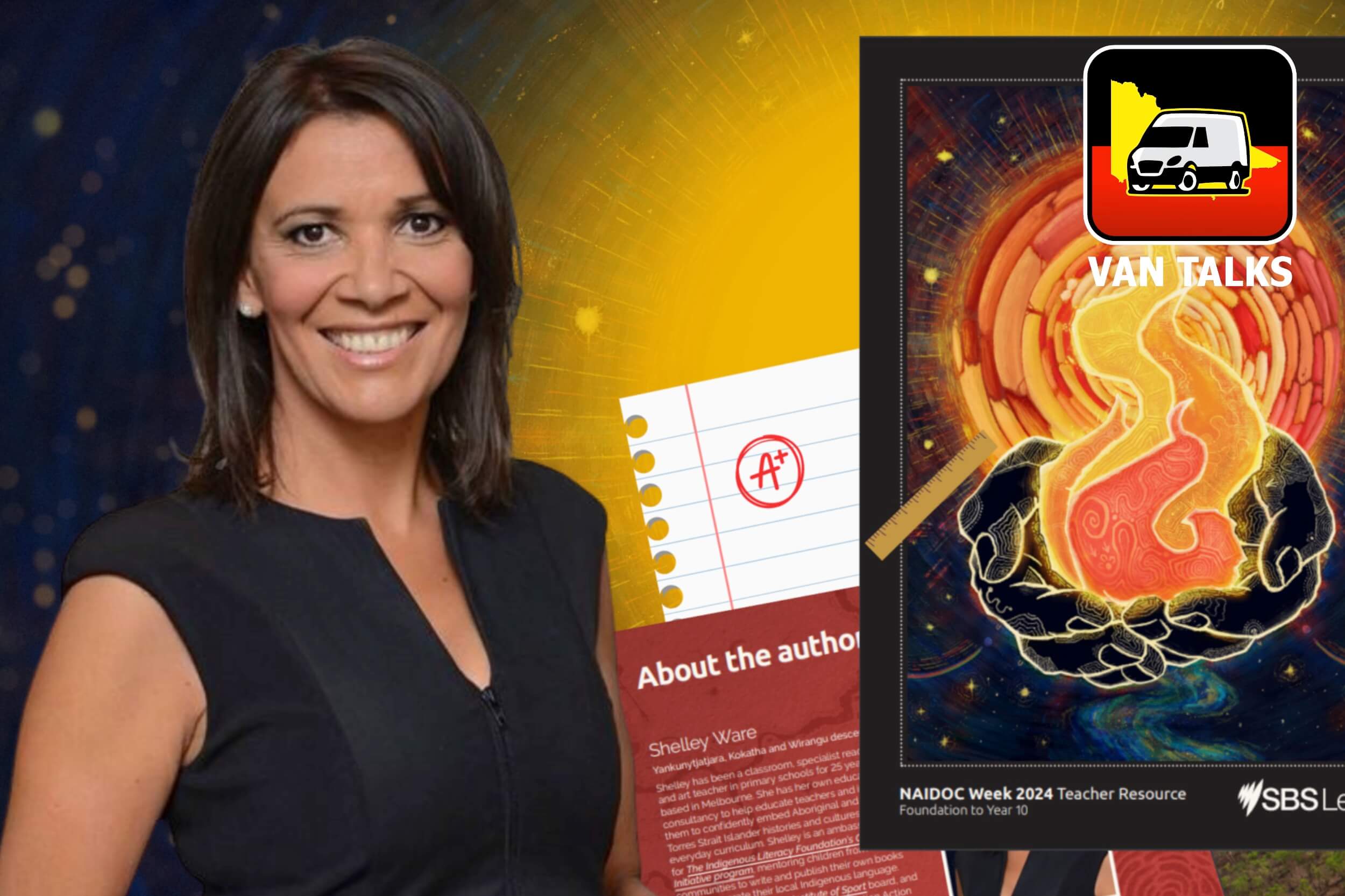
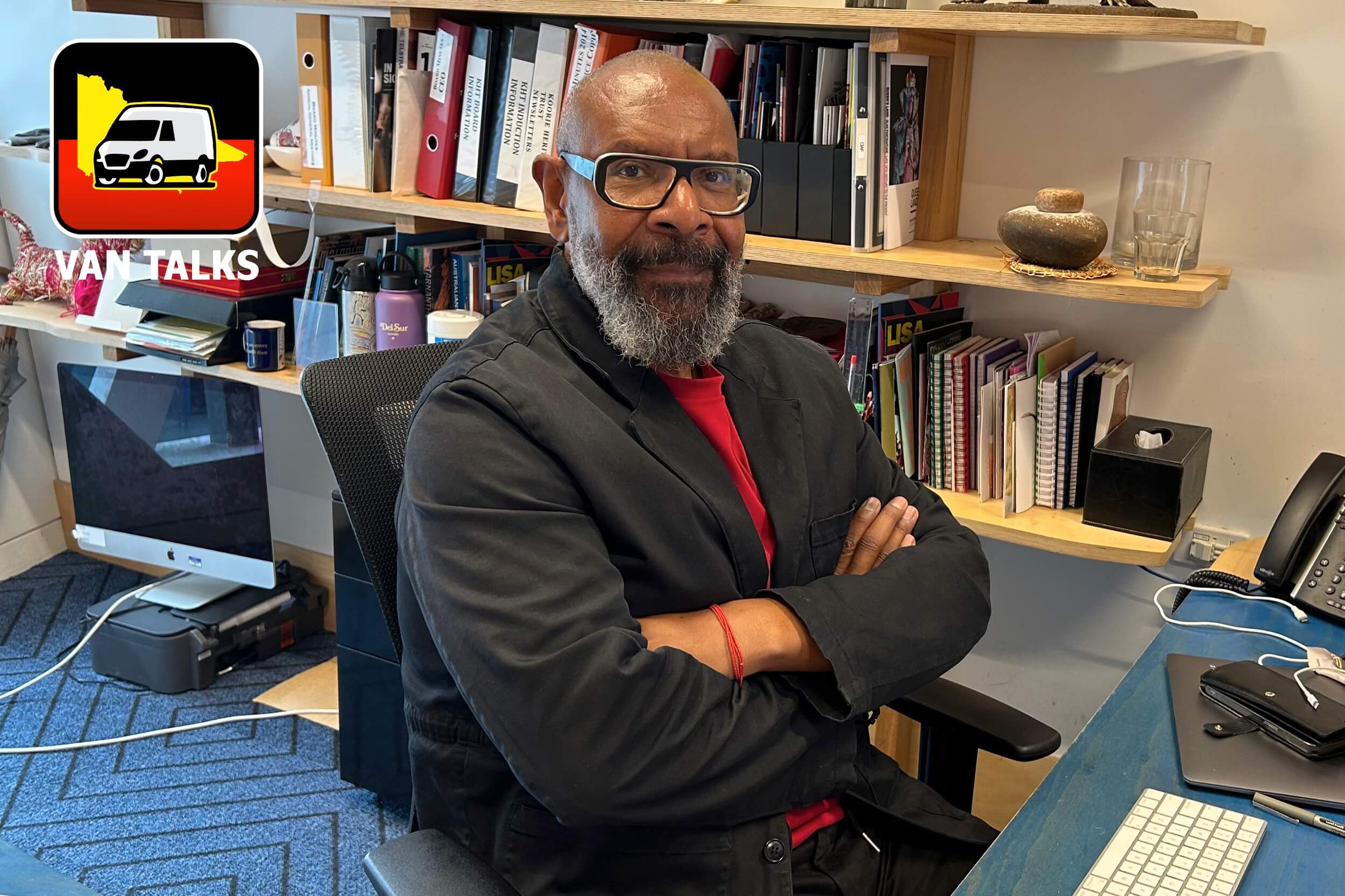
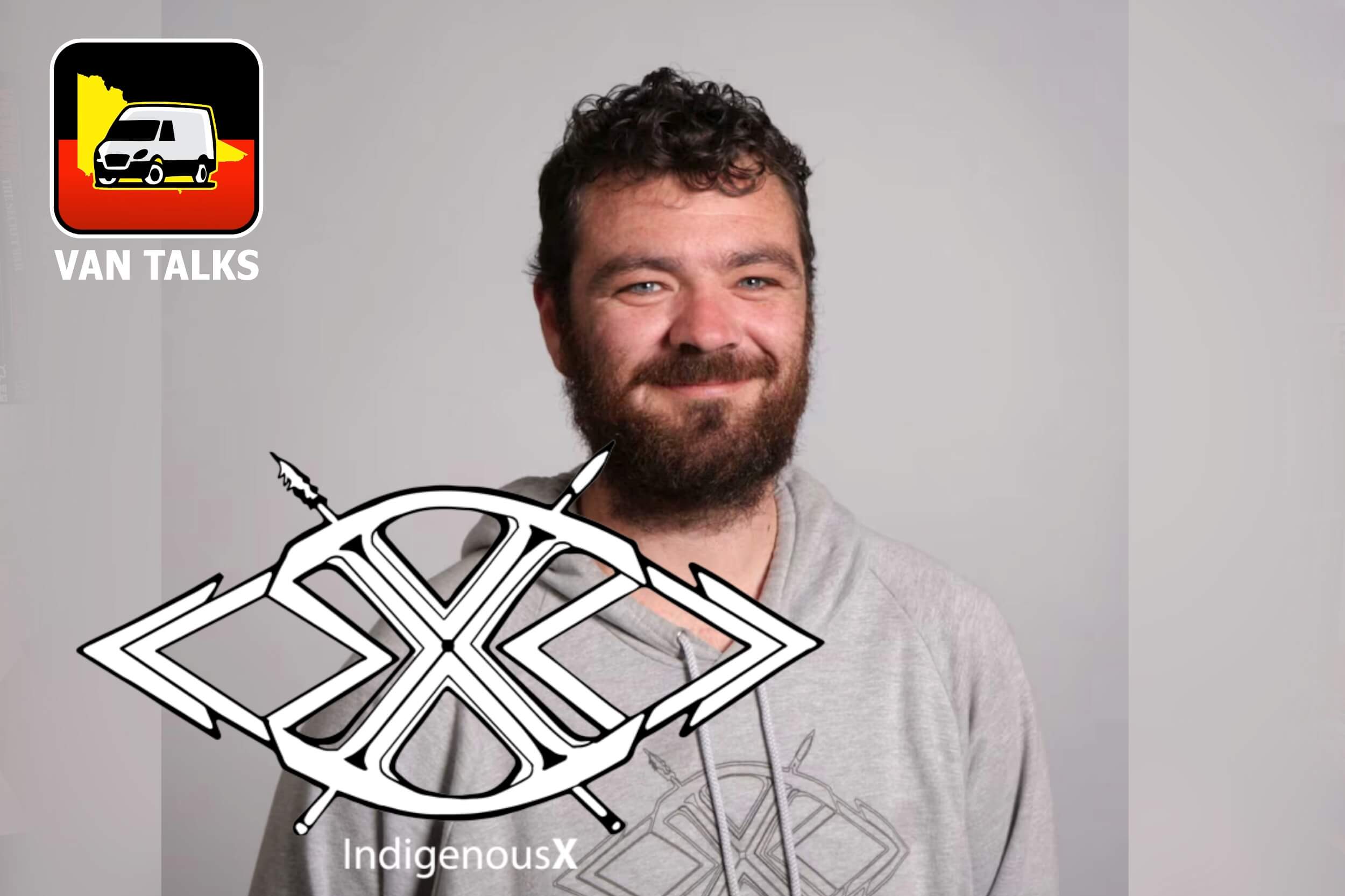
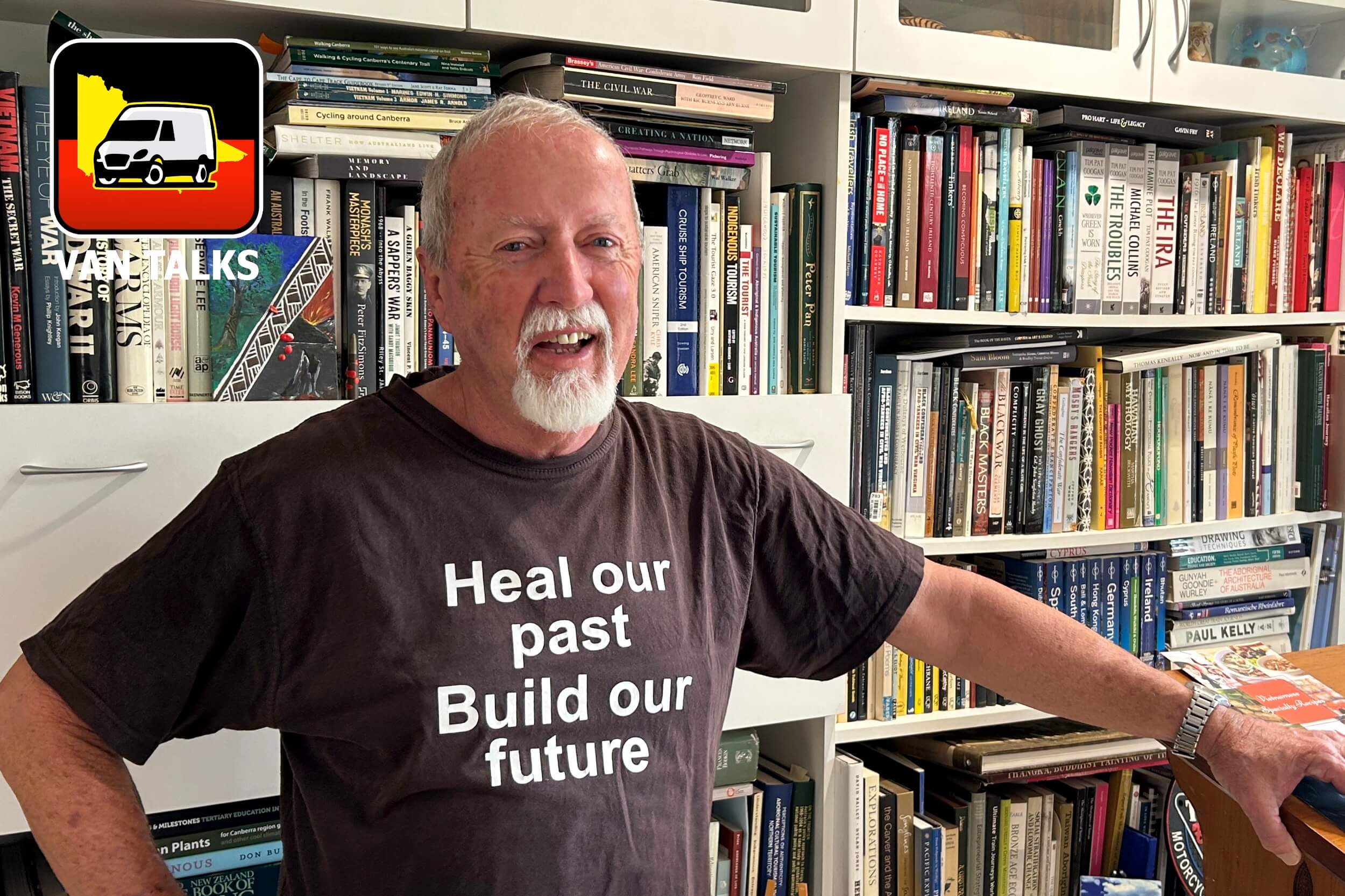
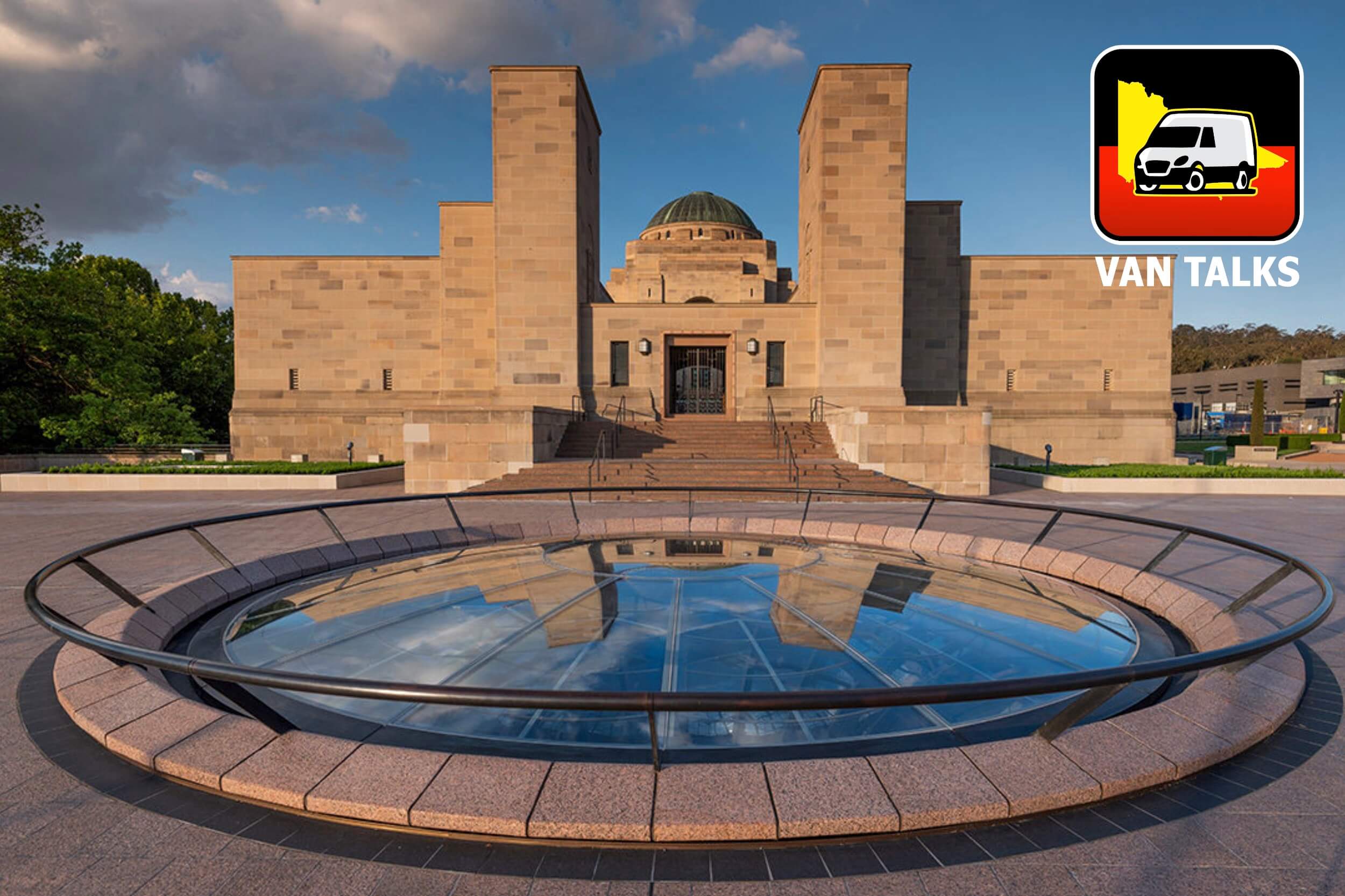

0 Comments